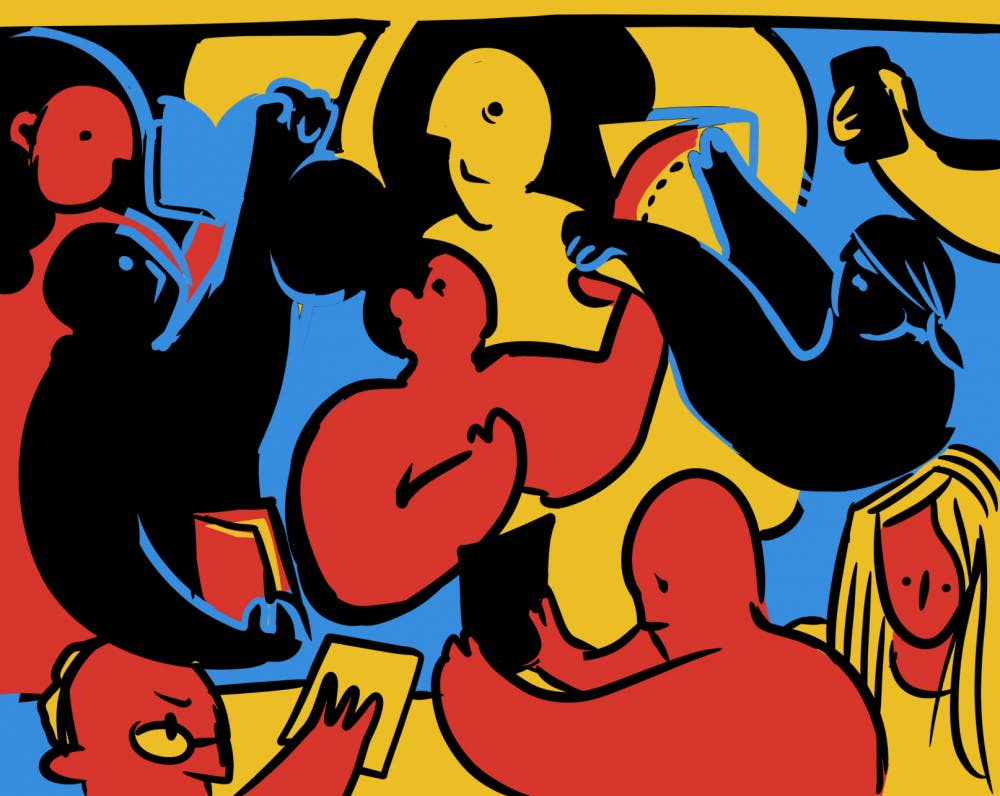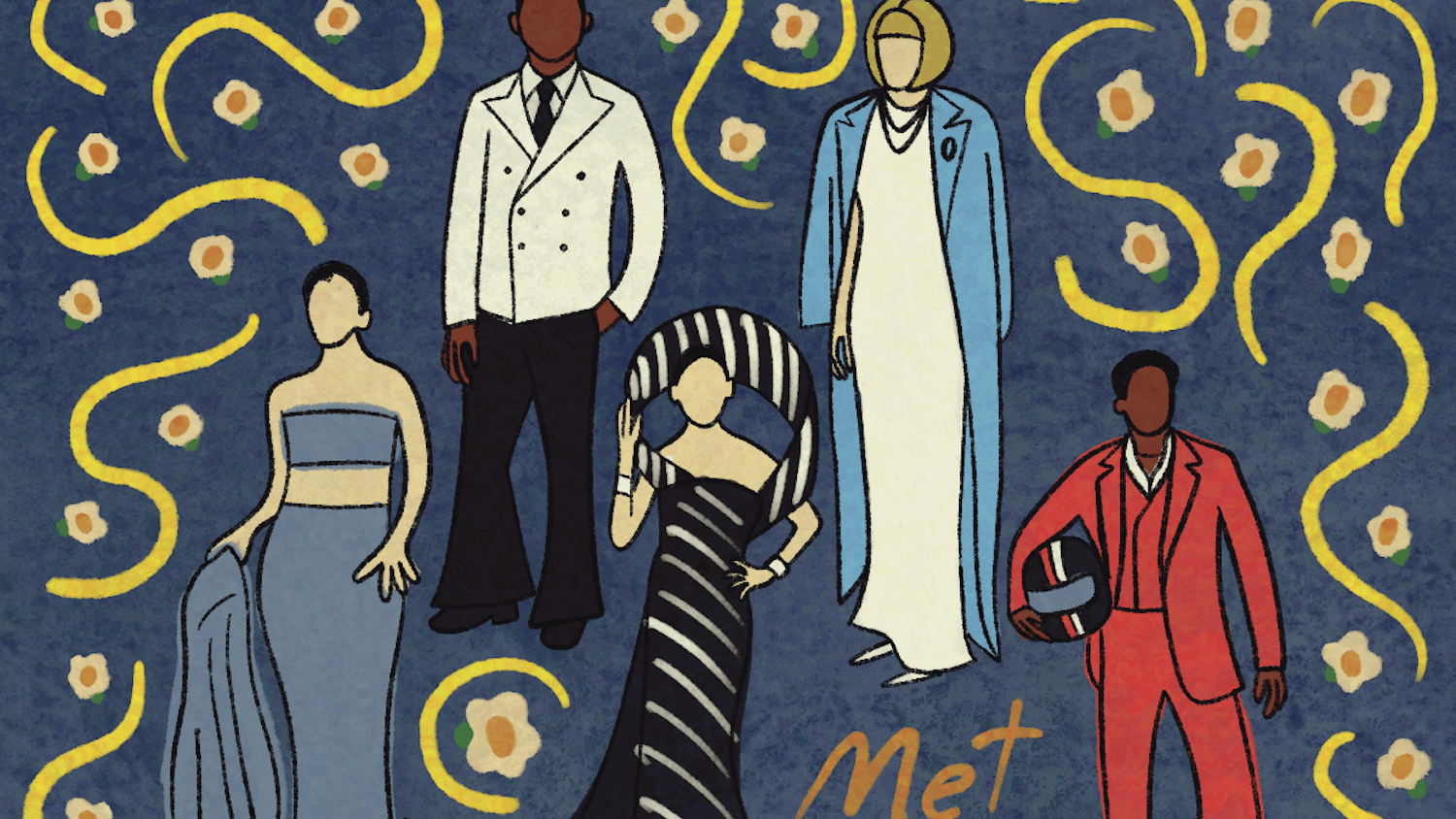Many female teaching assistants at UF have experienced discrimination in and outside of the classroom. Gender stereotypes have led to bias from students and faculty.
Female TAs said they have received demeaning comments and were taken less seriously. A UF study, in an online classroom, demonstrated that the male TA received more positive evaluations compared with female TA – although she taught both parts of the course.
As a TA at the University of Central Florida, Jessica Hightower, an interdisciplinary ecology UF doctoral alumna, experienced her own bias in 2010.
As a TA for a biology course, she overheard some of the students say her class would be easier compared to the male TA. When her class turned out to be just as challenging, she received nasty evaluations, Hightower said.
Some students wrote “she lacked confidence” or “she needs to speak up,” which at the time she found humorous.
“It didn't even register to me that, that was kind of screwed up until I started thinking about the differences for men and women in this field,” Hightower said.
Women are commonly viewed as nurturing and caring whereas men are assertive and decisive, said Samantha Douglas, a 27-year-old UF social psychology doctoral student.
When women don’t exude positive emotions like enthusiasm and high energy, Douglas said, they are penalized and devalued.
“The bar is just a little bit higher for women,” Douglas said.
When entering male dominated fields or expressing “overly masculine” traits, women face backlash effects, or negative reactions, Douglas added. It violates their prescribed gender roles of submission, friendliness, warmth and low social standing.
While the number of women in science and engineering fields is growing, women still make up 29% of science and engineering job roles.
Christine Vitiello, a 30-year-old UF social psychology doctoral student, said some of her Fall general psychology students referred to her as miss, instead of professor. Studies conducted by the American Political Science Association illustrate that students are more likely to think of a professor as a man and a teacher as a woman.
“They just don't view me as the same kind of authority figure as they do maybe a male TA,” she said.
Interdisciplinary ecology doctoral student Emily Khazan, 32, said she also experienced gender bias from 2011 to 2014 as an anatomy TA in another public university.
A male TA, who started around the same time she did, received a number of teaching awards, she said, while her teacher evaluations plummeted. She said he didn’t know anything more than she did.
“I continuously got similar feedback from students that had much more to do with my personality than my knowledge of the subject material,” Khazan said.
As a result, Khazan delved into implicit bias, or unconscious bias, and the implications it has on teacher evaluations in a mid-November study.
It reported that male TAs received positive evaluations from all female students whereas the female TA received positive evaluations from 88% of female students.
In the study, 66 students were assigned a “female” TA and 70 students were assigned a “male” TA, when actually Khazan fulfilled both duties. The study used the profile photo of interdisciplinary ecology doctoral student Jesse Borden to represent a white male TA.
The female TA received five times as many negative evaluations as the male TA.
Borden, who was also a co-author, said he found it interesting that bias existed, even within online courses where communication is limited and conducted mainly through writing.
“If this was a real life scenario, where I was a TA, and Emily was a TA, I would probably get the teacher's assistant award,” Borden said.
UF statistics professor Bikram Karmakar stated that the results of the study were not statistically significant, or reveal strong evidence of a pattern, and the ratings could be due to randomness. He also added that even peer-reviewed papers may be flawed.
“Unfortunately, the peer review may not be foolproof,” he wrote in an email.
Borden said that the study still signals there is a slight bias against women, and employers looking to hire do not look for statistical significance.
“Nobody's asking if the feedback you got is statistically significant,” Borden said. “Socially, we don't operate by statistics.”
Similar studies have demonstrated the same pattern of gender bias within academia. One university study in North Carolina revealed students rated the male assistant instructor higher than the female in an anthropology course. Another gender bias study revealed women and people of color received lower scores than white males.
Jessica Campbell, a 27-year-old UF social psychology doctoral student, wrote in an email that people of color and members of the LGBTQ community face greater discrimination, in relation to white woman who fill only one marginalized identity.
Underrepresented minorities account for 13% of people employed in science and engineering careers. Campbell said women who don’t identify as heterosexual or white may face greater discrimination. LGBT science and engineering faculty have described feelings of invisibility and pressure to "cover" their sexuality.
“Ultimately, the more we become aware of group-based stereotypes and associated repercussions, the more we can respond to people in individualized ways,” she wrote.






